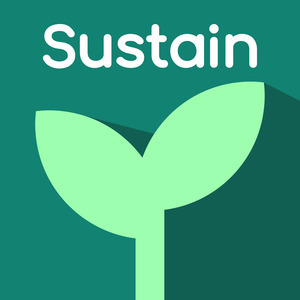Episode 263
Alison Hill on Product Management in Open Source
January 24th, 2025
40 mins 26 secs
About this Episode
Guest
Alison Hill
Panelist
Richard Littauer
Show Notes
We’re kicking off the new year of Sustain with host Richard Littauer discussing sustaining open source software with guest, Alison Hill, VP of Product at Anaconda, and a cognitive scientist with a PhD in psychology. Alison shares her journey from academia to industry, emphasizing the importance of statistics and data science in her career. She explains her role at Anaconda, focusing on developing secure and compatible distribution of Python packages and managing the community repository, Anaconda.org. The conversation covers the significance of product management in open source projects, particularly those with corporate backing, and how these roles can help in balancing user needs and business goals. In addition, Alison shares her thoughts on the challenges and strategies for maintaining open source projects without corporate support and touches on the ‘palmer penguins’ project. Click to download now!
[00:01:13] Alison discusses her transition from academic research in cognitive science to industry and data science, emphasizing her passion for statistics and education.
[00:02:41] Alison explains her work at Anaconda, focusing on product management and the Anaconda distribution, aiming to ease the use of Python and R packages in the industry and academia. She also elaborates on other projects she oversees, including Anaconda.org and its role in supporting open source projects and enterprise needs.
[00:05:17] We hear how Anaconda sustains itself financially through enterprise offerings and the balance of supporting open source while maintaining a business model.
[00:07:14] Alison shares her previous experience as the first PM of data science communication at Posit (formerly RStudio) and her role in enhancing data science education and product development.
[00:12:49] Richard and Alison explore the challenges of sustaining open source projects without corporate backing and strategies for maintaining personal and project health in the open source community. Alison discusses common mistakes companies make by confusing project management with product management in open source projects.
[00:17:18] Richard asks about the skills needed for developers to adopt a product-oriented approach. Alison suggests that successful product-oriented developers often have high empathy for end-users and experience with the pain points at scale, which helps them anticipate and innovate solutions effectively.
[00:20:49] Richard expresses concerns about the sustainability of smaller, community-led open source projects that lack corporate backing and the structured support that comes with it. Alison acknowledges her limited experience with non-corporate open source projects but highlights the difficulty in maintaining such projects without institutional support, and she shares her personal challenges with keeping up with open source project demands.
[00:27:41] Alison stresses the importance of clear goals and understanding the implications of joining larger ecosystems, reflects on the need for clarity about the desired outcomes when joining larger ecosystems, and shares examples of successful and unsuccessful engagements in such settings.
[00:29:52] She discusses alternative sustainability models, including paid support and subscriptions.
[00:33:00] Alison brings up the example of Apache Arrow and the challenges it faced with corporate sponsorship.
[00:34:23] We wrap up with Richard acknowledging that not all open source projects require significant funding or formal business models, and Alison explains the ‘palmerpenguins’ project she did at the beginning of COVID.
[00:37:07] Find out where you can follow Alison on the web.
Quotes
[00:22:18] “What is the minimum level of support you need to not feel like you’re drowning?”
Spotlight
- [00:38:14] Richard’s spotlight is Bernard Cornwell.
- [00:38:39] Alison’s spotlight is the book, Impossible Creatures.
Links
- SustainOSS
- podcast@sustainoss.org
- richard@sustainoss.org
- SustainOSS Discourse
- SustainOSS Mastodon
- Open Collective-SustainOSS (Contribute)
- Richard Littauer Socials
- Alison Hill, PhD Website
- Alison Presmanes Hill, PhD LinkedIn
- Alison Presmanes Hill GitHub
- Anaconda
- Anaconda.org
- The Third Bit-Dr. Greg Wilson
- Sustain Podcast-Episode 64: Travis Oliphant and Russel Pekrul on NumPy, Anaconda, and giving back with FairOSS
- Intercom on Product Management
- Sustain Podcast-Episode 135: Tracy Hinds on Node.js’s CommComm and PMs in Open Source
- Hadley Wickham
- palmerpenguins-GitHub
- Bernard Cornwell
- Impossible Creatures by Katherine Rundell
Credits
- Produced by Richard Littauer
- Edited by Paul M. Bahr at Peachtree Sound
- Show notes by DeAnn Bahr Peachtree Sound
